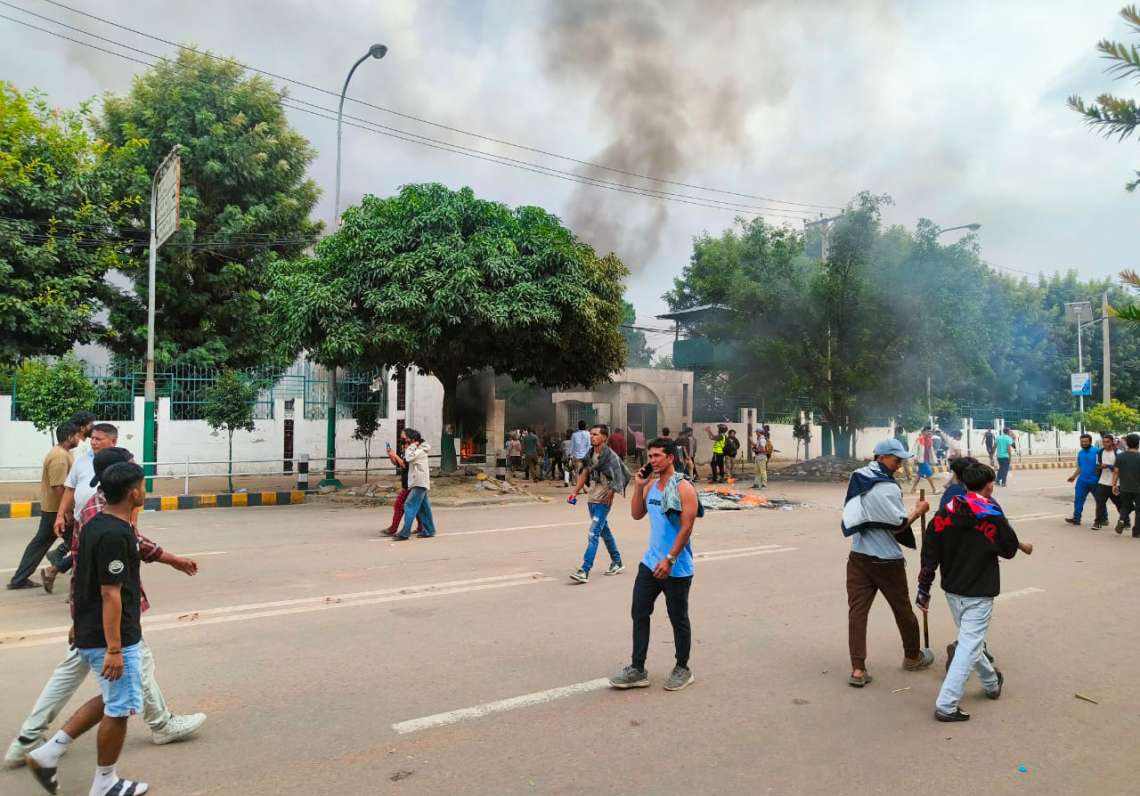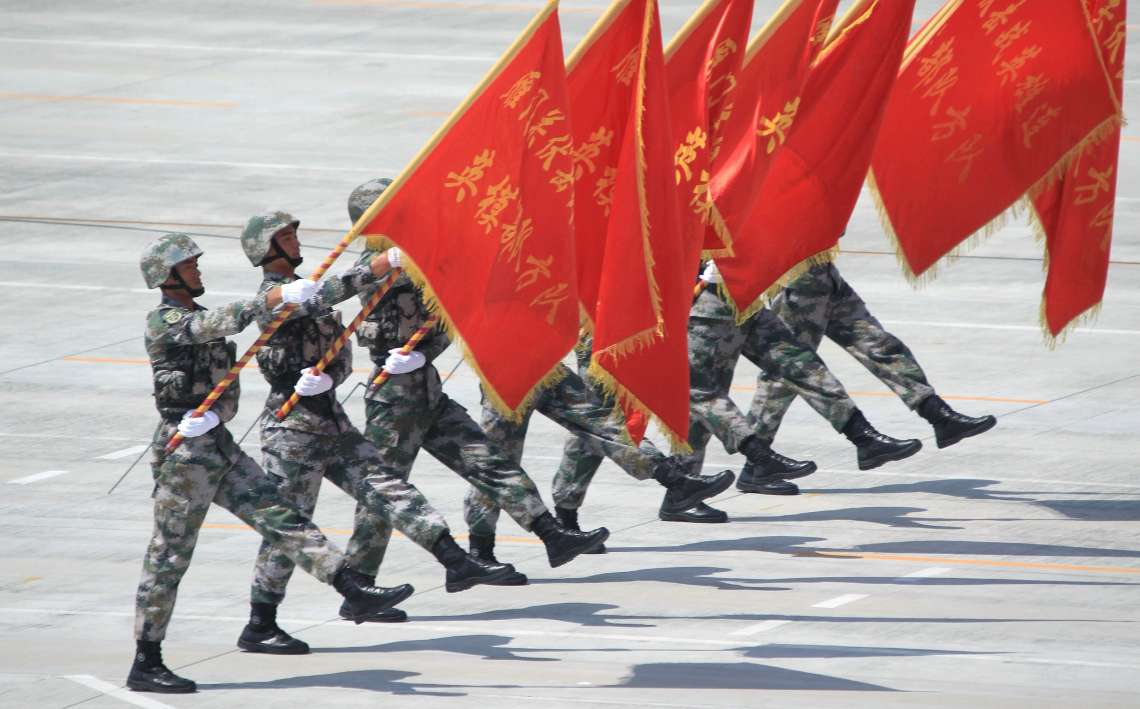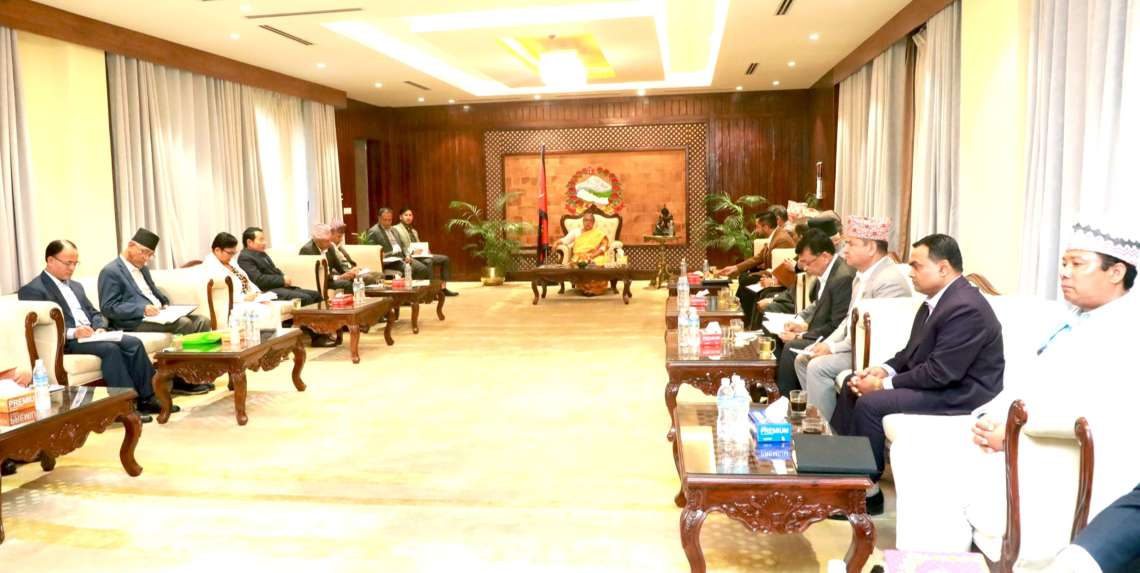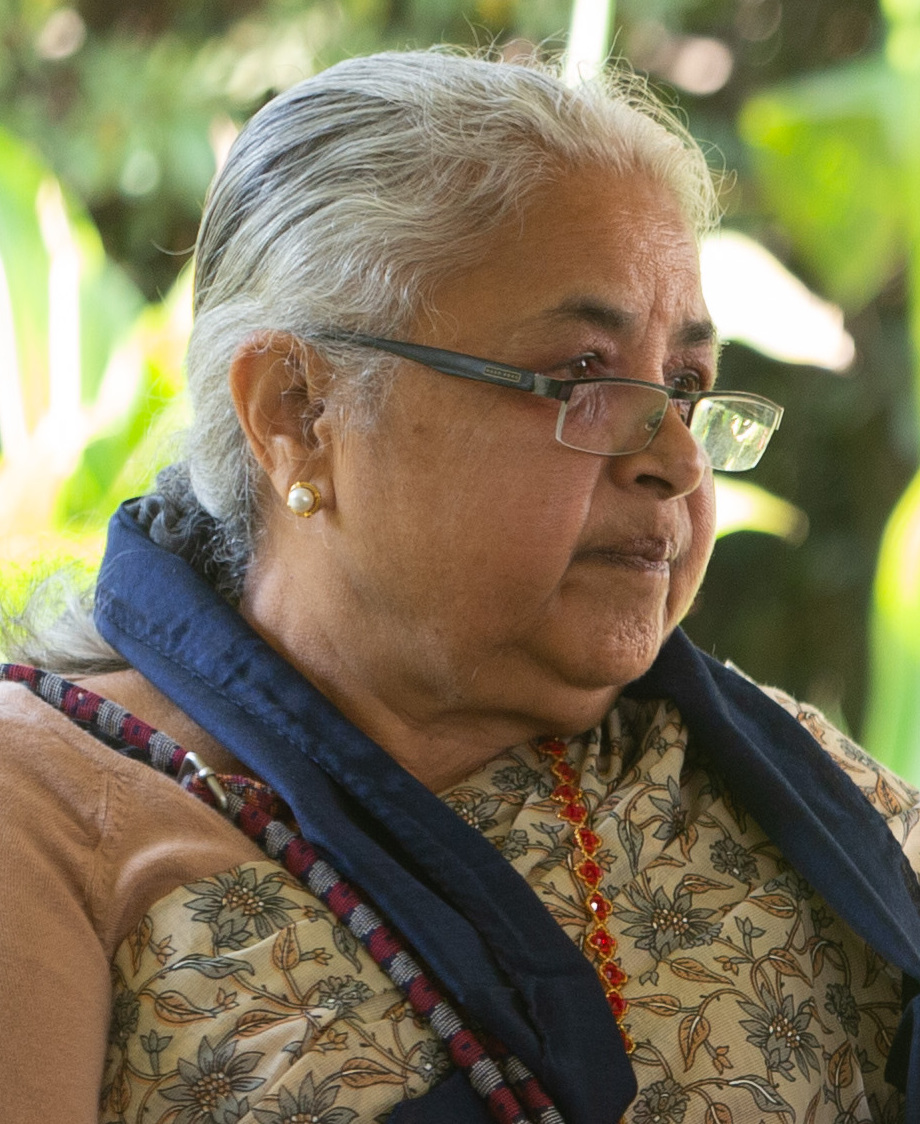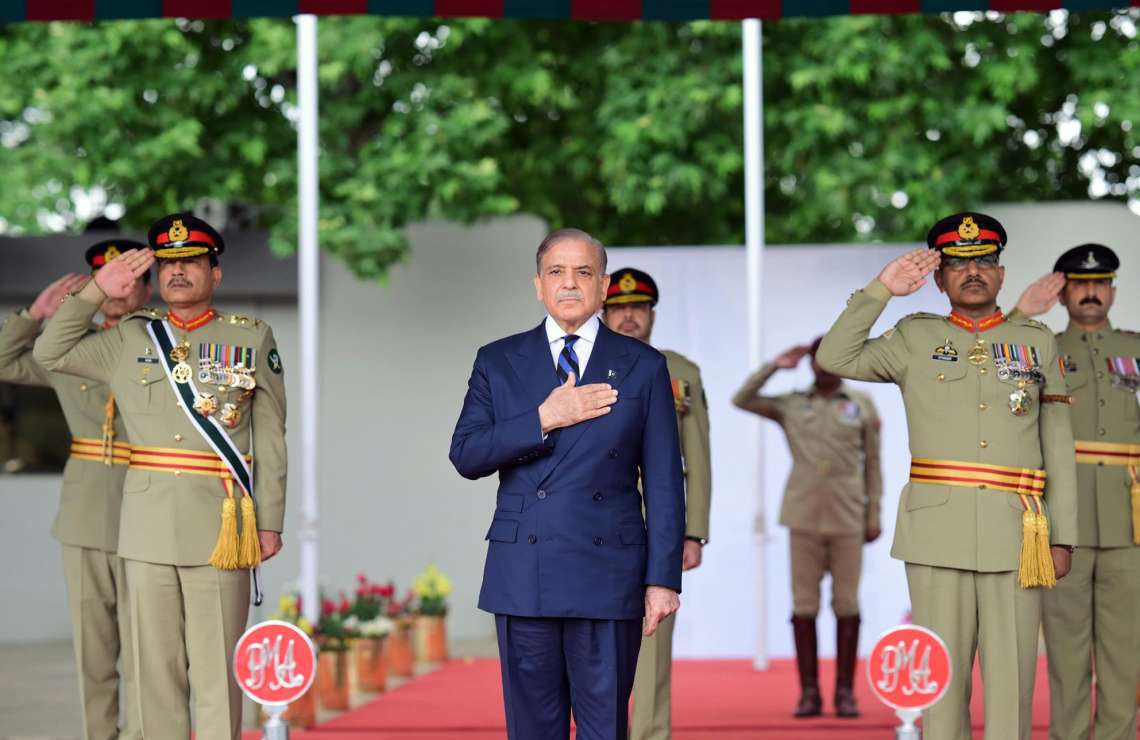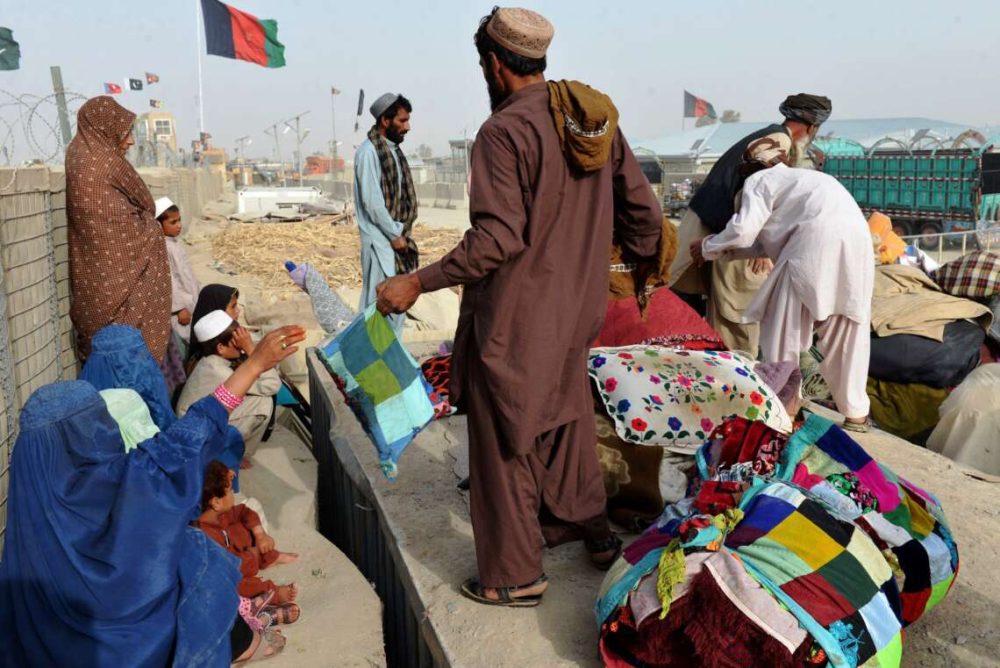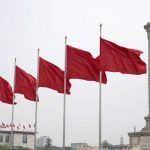China urges calm as Nepal reels from violent protests, mass prison breaks, and PM Oli’s resignation, leaving the Himalayan nation battling political upheaval and security chaos….reports Asian Lite news
Beijing on Wednesday urged all political actors in Nepal to “properly handle domestic issues” and restore peace, as violent protests and prison breaks deepened the Himalayan nation’s political crisis following the resignation of Prime Minister KP Sharma Oli.
Chinese Foreign Ministry spokesperson Lin Jian, addressing the press in Beijing, described China and Nepal as “traditional friendly neighbours” and expressed hope that Nepal would quickly stabilise. “We hope all sections of Nepal will properly handle domestic issues, restore social order and regional stability as soon as possible,” he said.
It marked Beijing’s first public reaction to Oli’s resignation, which came just days after he returned from China where he attended the Shanghai Cooperation Organisation (SCO) summit and a military parade commemorating the end of World War II.
Oli, long viewed as a pro-China leader instrumental in expanding Kathmandu’s strategic ties with Beijing, stepped down under immense pressure. Demonstrations had engulfed the country after a controversial government order banning major social media platforms sparked outrage among students and youth groups.
The protests, which began on 8 September, escalated rapidly into nationwide clashes, leaving at least 30 dead and over 1,000 injured. Security forces opened fire on demonstrators, fuelling further anger. Though the social media ban was lifted, public fury against corruption, nepotism and government heavy-handedness did not subside.
Beijing’s concerns and safety measures
China refrained from commenting directly on Oli’s resignation but emphasised the protection of its citizens in Nepal. Lin said there were no reports of Chinese casualties but added that the Chinese Embassy in Kathmandu had activated emergency response measures.
“Chinese institutions and citizens are reminded to keep a close eye on the situation and take earnest measures for security protection, and don’t go out unnecessarily,” Lin said. The embassy has asked Nepalese authorities to ensure the safety of Chinese nationals.
The advisory reflects Beijing’s increasing unease as political instability in Nepal risks spilling over into wider regional concerns, particularly given the country’s role in China’s Belt and Road Initiative.
The political upheaval has been compounded by a wave of mass prison escapes that have shocked authorities. According to The Kathmandu Post, more than 15,000 inmates escaped from at least 25 facilities during violent unrest earlier this week.
The most alarming incident occurred at the Central Jail in Sundhara, where around 3,300 prisoners fled, followed by 1,400 breaking out from Nakkhu Prison in Lalitpur. In Dillibazar Prison, inmates set fires in an attempted breakout but were contained by security forces.
At the Ramechhap District Prison, inmates broke through internal locks and nearly forced open the main gate before soldiers opened fire, injuring at least 12. “Around 12 to 13 inmates were injured after the army opened fire as they reached the gate,” said Chief District Officer Shyam Krishna Thapa.
The situation was even more tragic at the Banke Juvenile Reform Centre, where five inmates were killed when police opened fire during chaos triggered by protesters attempting to seize weapons. Out of 228 children housed there, 122 managed to escape.
Authorities have confirmed that at least 27 individuals involved in looting, arson and violent assaults were arrested in Kathmandu within 12 hours. A significant cache of weapons—31 firearms, magazines and ammunition—was also recovered.
Curfew and military deployment
The Nepal Army has extended a nationwide curfew until Friday morning, warning that “lawless individuals and groups” had infiltrated the Gen Z protest movement. The Army said such groups had been engaging in arson, looting, violent assaults and even attempted sexual violence under the guise of demonstrations.
Expressing condolences over the loss of life, the Army urged citizens to cooperate with efforts to restore order. “The Nepal Army expresses its gratitude to all citizens for their continued support in fulfilling their responsibility to maintain peace and security in the country in the current difficult situation,” a statement said.
Military hospitals are currently treating 23 Nepal Police officers and three civilians injured in recent clashes.
Roots of public anger
The protests, led largely by students and young professionals, have laid bare the frustrations of a generation grappling with shrinking opportunities. Nearly 5,000 young Nepalis leave the country daily to seek work abroad, worsening the brain drain.
Adding fuel to the unrest, the “Nepo Babies” trend on social media revealed the lavish lifestyles of politicians’ children, highlighting stark inequalities with ordinary citizens. For protesters, these images symbolised the entrenched corruption and nepotism plaguing Nepal’s political class.
Oli’s resignation has not yet calmed tensions, and the process of forming a transition government remains fraught. Former Chief Justice Sushila Karki’s name has surfaced as a possible consensus candidate, with sections of the youth movement reportedly backing her to lead an interim administration.
For now, however, the nation remains gripped by uncertainty, facing a dual challenge of political instability and a spiralling law-and-order crisis.


